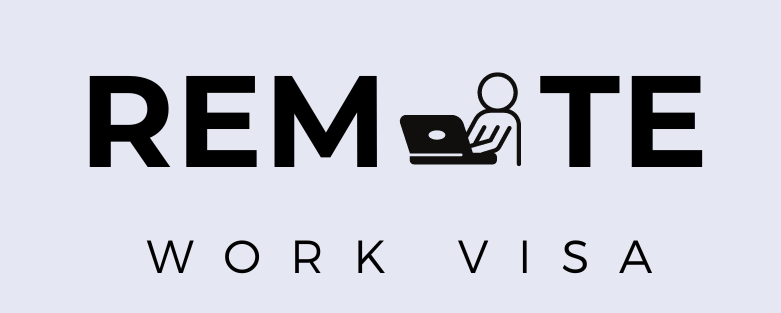
Spain, with its rich culture, beautiful landscapes, and excellent work-life balance, has become an increasingly popular destination for remote workers. To cater to the growing demand, Spain offers a remote work visa, also known as the “Non-Lucrative Residence Visa.” This visa allows remote workers and digital nomads to live and work in the country for up to one year, with the possibility of renewal. In this article, we’ll discuss the requirements, application process, and other relevant information about the remote work visa in Spain.
Eligibility Criteria
To qualify for the remote work visa in Spain, applicants must meet the following requirements:
- Proof of stable income: Applicants should provide evidence of a stable and sufficient source of income to support themselves and any accompanying family members. This can include salary statements, bank account statements, or proof of investment income.
- No local employment: Remote workers must work for a company based outside of Spain or be self-employed as digital nomads. The visa does not allow applicants to work for a Spanish employer or start a business in Spain.
- Health insurance: Applicants must have comprehensive health insurance coverage, including repatriation, for the entire duration of their stay in Spain. The insurance policy should be issued by a company authorized to operate in Spain.
- Clean criminal record: Applicants must have a clean criminal record in their country of origin and any other countries they have resided in during the past five years.
- Proof of Savings: Prove at least €25,000 in savings and an additional €5,800 for each family member joining you. Bank statements for the past 6 months are required.
- Medical certificate: Applicants must submit a medical certificate issued within the last 90 days, stating that they are free from any contagious diseases as per the International Health Regulations.
Application Process
- Gather required documents: Prepare all the necessary documents, including a completed visa application form, passport-size photographs, a valid passport, proof of income, health insurance, criminal record certificate, and medical certificate.
- Legalize and translate documents: Any document not in Spanish must be translated by a certified translator and legalized with an Apostille or through diplomatic channels, depending on the applicant’s country of origin.
- Submit the application: Applicants must submit their visa application and supporting documents in person at the Spanish Consulate or Embassy in their country of residence. It is recommended to book an appointment well in advance, as waiting times can be lengthy.
- Pay the visa fee: The visa application fee must be paid when submitting the application. The fee may vary depending on the applicant’s nationality.
- Wait for the decision: The processing time for the remote work visa can take up to three months. If the application is approved, the applicant will be notified and asked to collect the visa from the Consulate or Embassy.
- Enter Spain and register: Once the visa is issued, the applicant has three months to enter Spain. Upon arrival, they must register with the local immigration office (Extranjería) within 30 days to obtain a Foreigner Identity Card (TIE), which serves as the official residence permit.
Renewal and Long-term Residence

The remote work visa in Spain is initially valid for one year but can be renewed for two-year periods (for up-to 5 years in total). The renewal process requires the applicant to demonstrate continued compliance with the eligibility criteria, including sufficient income and health insurance.
After five years of continuous residence in Spain, remote workers may be eligible to apply for long-term residence or Spanish citizenship, depending on their specific situation and compliance with additional requirements.
Do digital nomads visa holders get tax incentives in Spain?
Individuals who spend over 183 days in Spain are classified as tax residents, even if they are employed by a foreign entity.
Nevertheless, tax advantages are offered to digital nomads who reside and work in the country through the visa program. Under the Startup Act, digital nomads residing in Spain can enjoy substantial tax advantages, such as being charged the non-resident income tax rate (IRNR) rather than the resident income tax rate (IRPF).
Remote employees may be eligible to pay a reduced tax rate of 15% for the initial four years of their stay, as long as their yearly earnings are below €600,000. This is in contrast to the typical rate of 24%.
What makes Spain an attractive choice for digital nomads?

With its rich culture, natural beauty, outdoor lifestyle, excellent internet speeds, affordable living expenses, and abundance of warm weather , Spain is an idyllic country for remote workers looking to experience la vida española.
Valencia, a coastal city, was recently named the top city for expats worldwide, with Madrid also ranking in the top 10. In December, three Spanish villages were ranked as the best villages for tourism globally in UNWTO’s annual ranking, while a town in Spain has been recognized by UNESCO as having the most beautiful street in Europe.
If you prepare the proper paperwork and meet the visa requirements, you can legally live and work remotely in Spain for up to 5 years. ¡Buena suerte!
